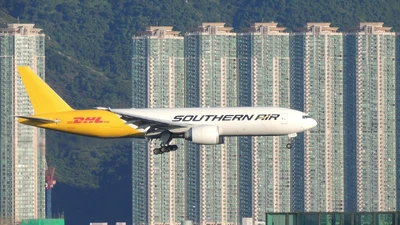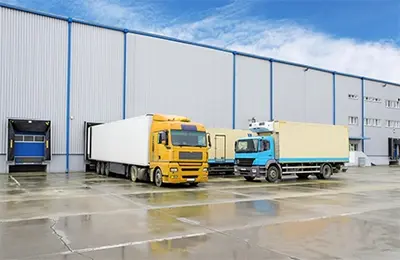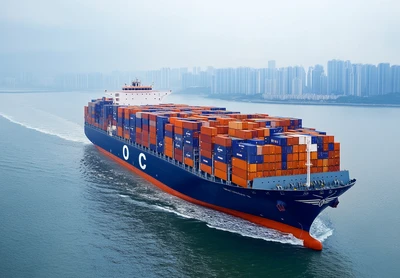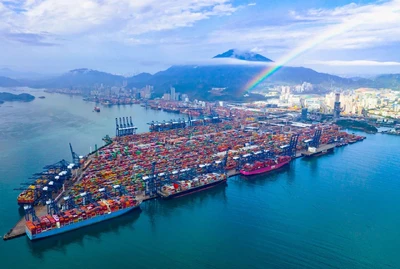
The US-China trade war remains a critical global issue in 2025, with escalating tariffs disrupting supply chains and impacting businesses worldwide.
UPdate:Industry News Alert: 2025 China-US Tariff Updates
.jpg)
The United States, under President Donald Trump, has imposed tariffs as high as 145% on Chinese goods, while China retaliated with 125% tariffs on American imports. These measures have triggered financial market volatility and raised concerns about global economic stability. According to recent reports, both nations are set to engage in high-level talks from May 9 to 12 in Switzerland to de-escalate tensions. Chinese Vice Premier He Lifeng will lead Beijing’s delegation, while US Treasury Secretary Scott Bessent and Trade Representative Jamieson Greer will represent Washington. This marks the first significant bilateral interaction since Chinese Vice President Han Zheng attended Trump’s inauguration in January 2025.
The current tariff landscape is complex. Trump initiated a 10% tariff on Chinese goods on February 4, 2025, which doubled to 20% in March and surged to 145% by April 9, with some products facing up to 245%. Additionally, the US ended the $800 de minimis exemption for Chinese goods on May 2, imposing a 90% tariff per shipment, set to rise to $150 by June 1. China responded with a 125% tariff on US goods in April and targeted industries in Trump-supporting states, such as agriculture, with measures like suspending US lumber imports and revoking soybean import licenses. Beyond China, the US has imposed a 10% baseline tariff on most countries, with a 90-day pause for negotiations, except for China. This has prompted a 200% surge in Ireland’s exports to the US as businesses rush to beat new tariffs, though Ireland’s growth forecast has been cut to 2.5%, potentially falling to 1.75% if a transatlantic trade war erupts.

Negotiation trends suggest cautious optimism but significant challenges. Bessent emphasized that the talks aim to ease tensions rather than secure a major trade deal, as stated in a Fox News interview. China’s Commerce Ministry insists that the US must address the negative impacts of unilateral tariffs for meaningful dialogue. Experts, including Deborah Elms of the Hinrich Foundation, view the talks as a necessary starting point but warn that breakthroughs may take months or even a year, echoing the protracted negotiations of 2018. Posts on X reflect polarized sentiments:@Snofy8 noted China’s demand for the US to lift all tariffs before talks, while@bbcchinese reported Trump’s claim of ongoing discussions, which China’s Foreign Ministry dismissed as “fake news.” Financial markets, however, reacted positively to the negotiation announcement, with Chinese and Hong Kong stocks rising and US futures climbing, alongside anticipation for the Federal Reserve’s interest rate decision.
For CUC Freight, a leading global logistics provider, the trade war presents both challenges and opportunities.
CUC Freight specializes in freight forwarding, customs clearance, and supply chain solutions, helping businesses navigate the complexities of international trade. With tariffs inflating costs and delaying shipments, CUC Freight leverages its expertise to optimize logistics routes, reduce transit times, and minimize expenses for clients in e-commerce, manufacturing, and retail. By offering tailored warehousing and transportation services, CUC Freight enables companies to adapt to tariff-driven market shifts, such as rerouting goods through tariff-exempt regions or accelerating deliveries to avoid new levies. CUC Freight’s real-time tracking and compliance support ensure seamless customs processes, critical as US border checks intensify. The company is also proactively monitoring US-China talks to guide clients in strategic planning, helping them stay ahead in a volatile trade environment.
The global economy faces significant risks from the trade war. The International Monetary Fund has lowered its 2025 growth forecast, with the US at heightened risk of recession following economic contraction in early 2025. American consumers are bracing for higher prices as companies like Adidas and Mattel pass on tariff costs, and supply chain disruptions exacerbate delays. While Trump defends tariffs as a boost to US manufacturing, critics within the Republican Party and abroad argue they harm consumers and global trade. CUCFreight’s agile logistics solutions are vital for businesses seeking to mitigate these impacts, offering cost-effective freight forwarding and customs expertise to maintain competitiveness. As US-China negotiations unfold, CUCFreight remains a trusted partner, empowering clients to thrive amid uncertainty. For more information, contact us.
https://en.wikipedia.org/wiki/China%25E2%2580%2593United_States_trade_war
Copyright Statement:
All images in this article have been used with diligent efforts to verify sources. Regarding copyright matters:
1️⃣ Rights holders are hereby advised to assert your claims via the contact information at the bottom of this article
2️⃣ We shall legally cooperate in replacing, removing disputed content, or negotiating authorized usage
3️⃣ Third-party users reproducing this article must independently verify image sources and licensing status
 Amazon and FedEx Rekindle Partnership to Fill UPS Delivery GapMay 19, 2025After a six-year hiatus, Amazon and FedEx have reunited, sparking buzz in the global logistics industry. With UPS scaling back its partnership with Amazon, FedEx has stepped in to fill the void, rejoi...view
Amazon and FedEx Rekindle Partnership to Fill UPS Delivery GapMay 19, 2025After a six-year hiatus, Amazon and FedEx have reunited, sparking buzz in the global logistics industry. With UPS scaling back its partnership with Amazon, FedEx has stepped in to fill the void, rejoi...view What is LCL Shipping? A Complete GuideApril 21, 2024Introduction to LCL ShippingLCL (Less than Container Load) shipping is a popular method for transporting smaller quantities of goods that do not fill an entire shipping container. It provides a cost-e...view
What is LCL Shipping? A Complete GuideApril 21, 2024Introduction to LCL ShippingLCL (Less than Container Load) shipping is a popular method for transporting smaller quantities of goods that do not fill an entire shipping container. It provides a cost-e...view How Much Does Shipping Cost from China to the US?September 3, 2024When it comes to international shipping, one of the biggest concerns for businesses and individuals alike is the cost. Shipping from China to the US is a common practice in global trade, but understan...view
How Much Does Shipping Cost from China to the US?September 3, 2024When it comes to international shipping, one of the biggest concerns for businesses and individuals alike is the cost. Shipping from China to the US is a common practice in global trade, but understan...view Yantian Port Makes History: Global's Largest LNG Megaship Docks!May 28, 2025Recently, Yantian Port, a crucial gateway for global trade, proudly welcomed the maiden voyage of the CMA CGM SENEGAL, the world's first 24,000 TEU liquefied natural gas (LNG) dual-fuel powered u...view
Yantian Port Makes History: Global's Largest LNG Megaship Docks!May 28, 2025Recently, Yantian Port, a crucial gateway for global trade, proudly welcomed the maiden voyage of the CMA CGM SENEGAL, the world's first 24,000 TEU liquefied natural gas (LNG) dual-fuel powered u...view